Abstract
The effects of the arsenical drug melarsonyl potassium on Onchocerca volvulus were investigated in patients in Cameroon infected with the Cameroon forest and Sudan savanna strains of the parasite. Two intramuscular dosage schedules were tested: the first comprised 4 consecutive daily doses of 200 mg repeated once after a 10-14 day interval, i.e., 2 (4×200 mg). The second was a single dose schedule at 7.1 mg/kg—10 mg/kg, with a maximum of 500 mg.
In most trials the drug had no immediate action on microfilarial concentrations. Only after the 2(4×200 mg) melarsonyl course against the Sudan savanna strain was a slight microfilaricidal action detected.
The 2(4×200 mg) course of melarsonyl apparently killed or sterilized most or all of the adult female worms in the patients tested, leaving the residual population of microfilariae to decline gradually, from natural mortality, over the ensuing 2 years. These residual microfilariae could be killed with diethylcarbamazine.
Single doses of melarsonyl at 7.1 mg/kg—10 mg/kg were somewhat less effective in killing or sterilizing adult worms, but it is suggested that if doses at the higher end of this range were to be repeated annually patients could be rendered free from microfilariae by the end of 3 years.
It is emphasized that the risks of arsenical encephalopathy should at present preclude the use of melarsonyl potassium in the treatment of onchocerciasis, but that if this danger could be avoided the drug might prove to be of considerable use for mass therapy in control campaigns.
Full text
PDF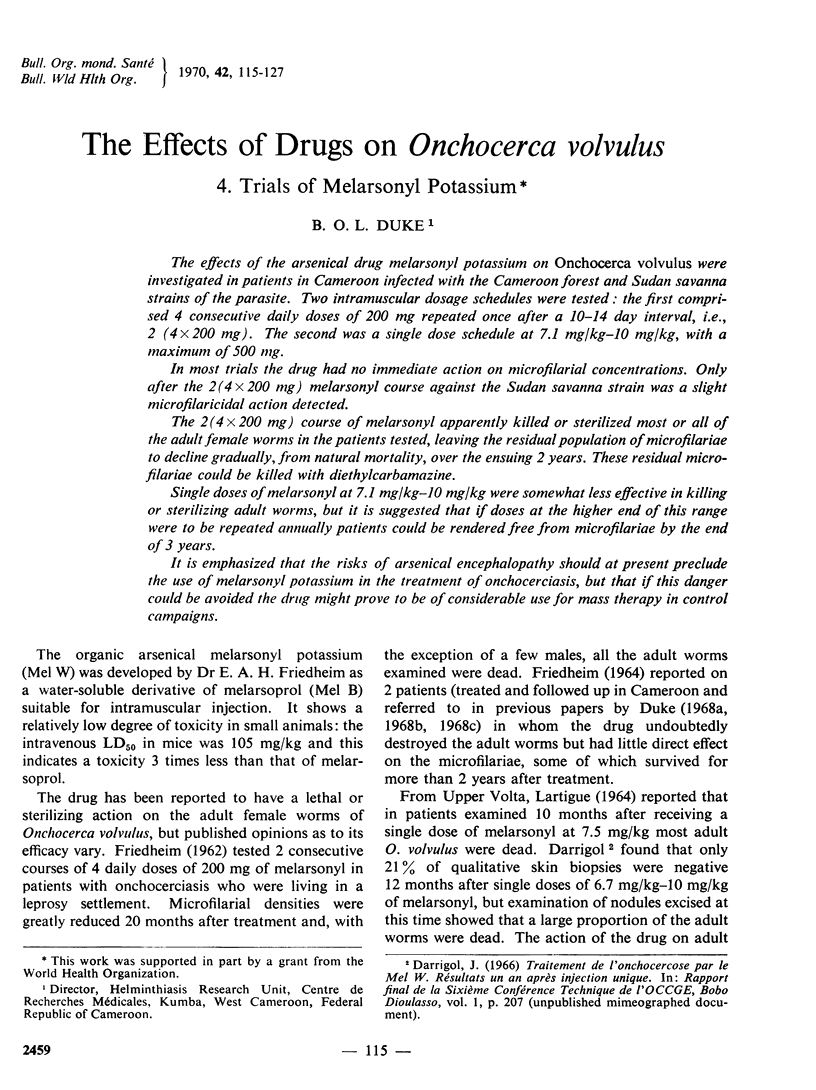
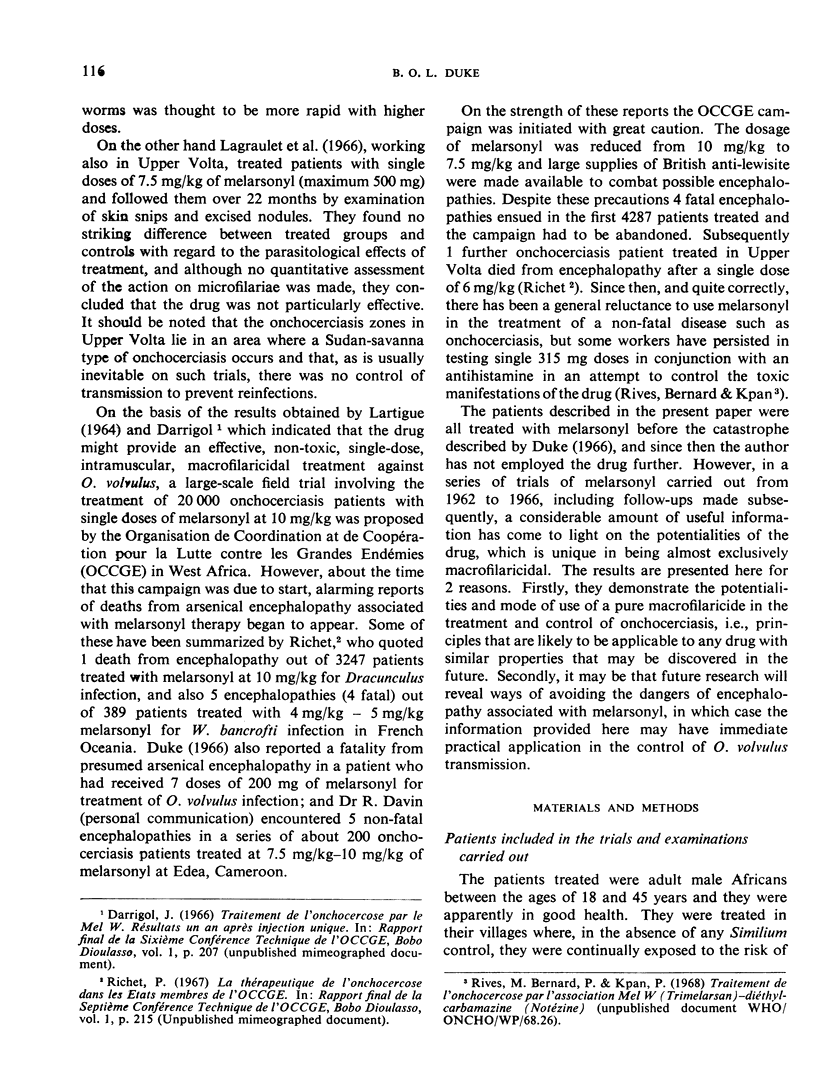
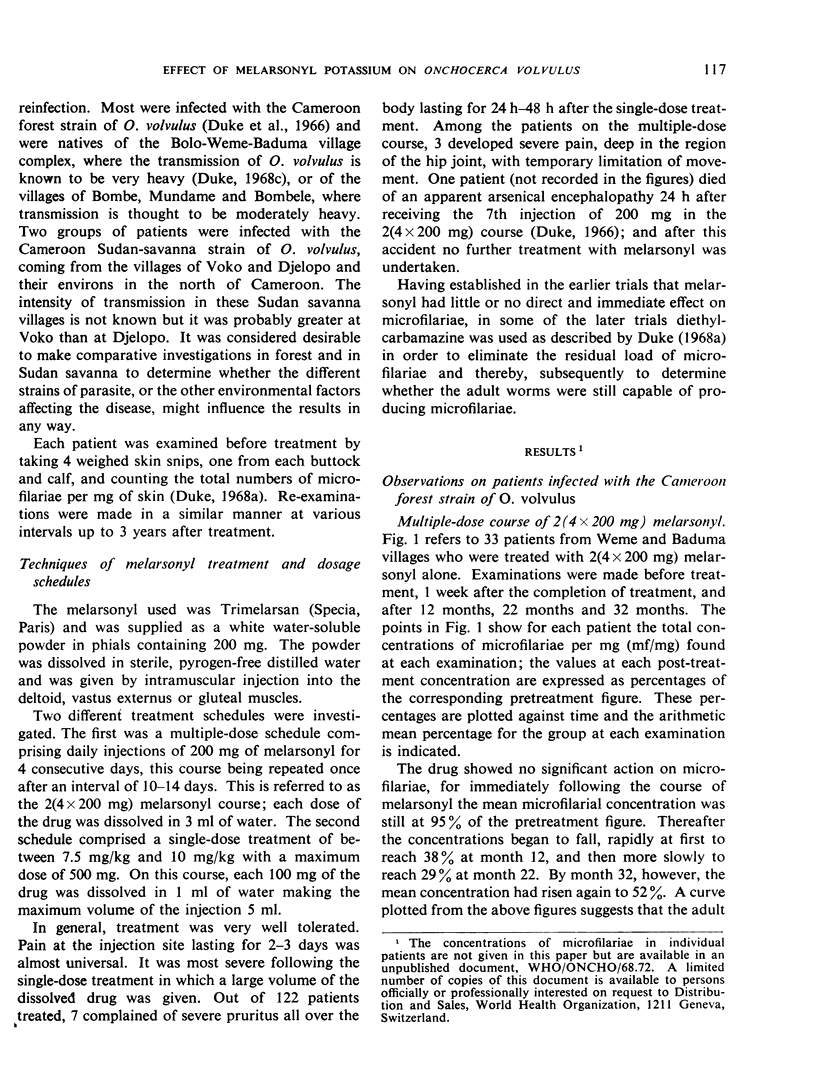
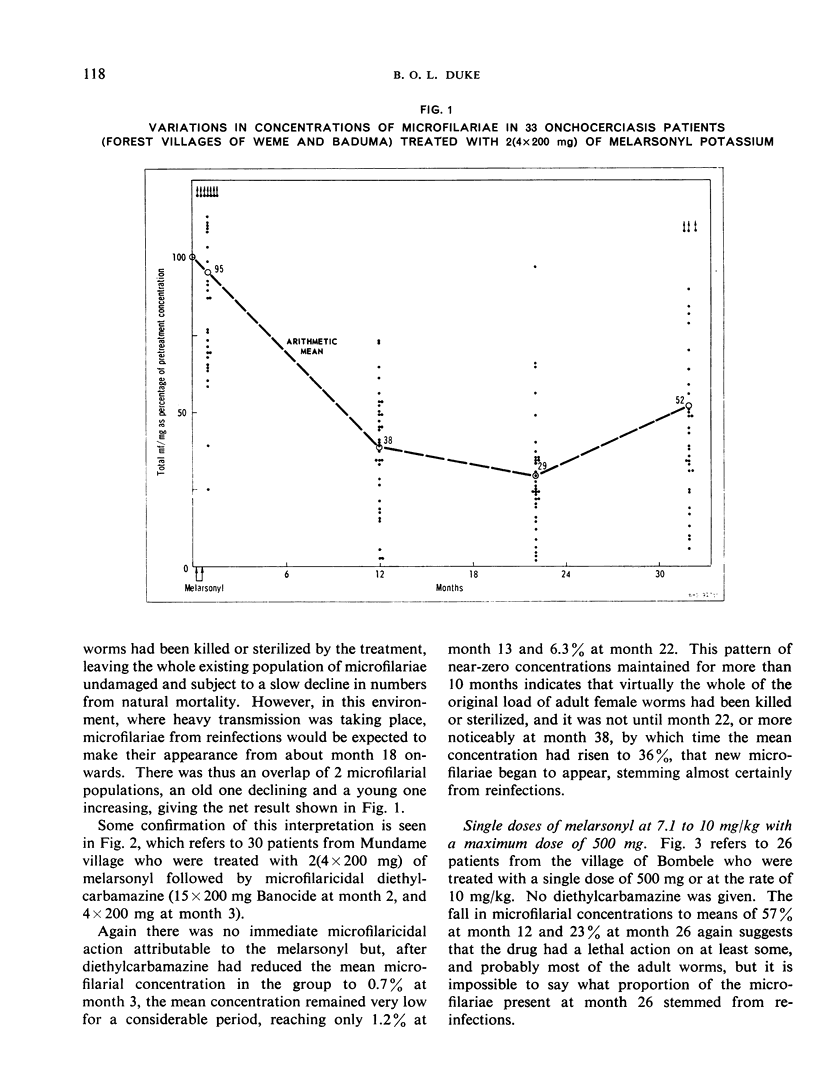
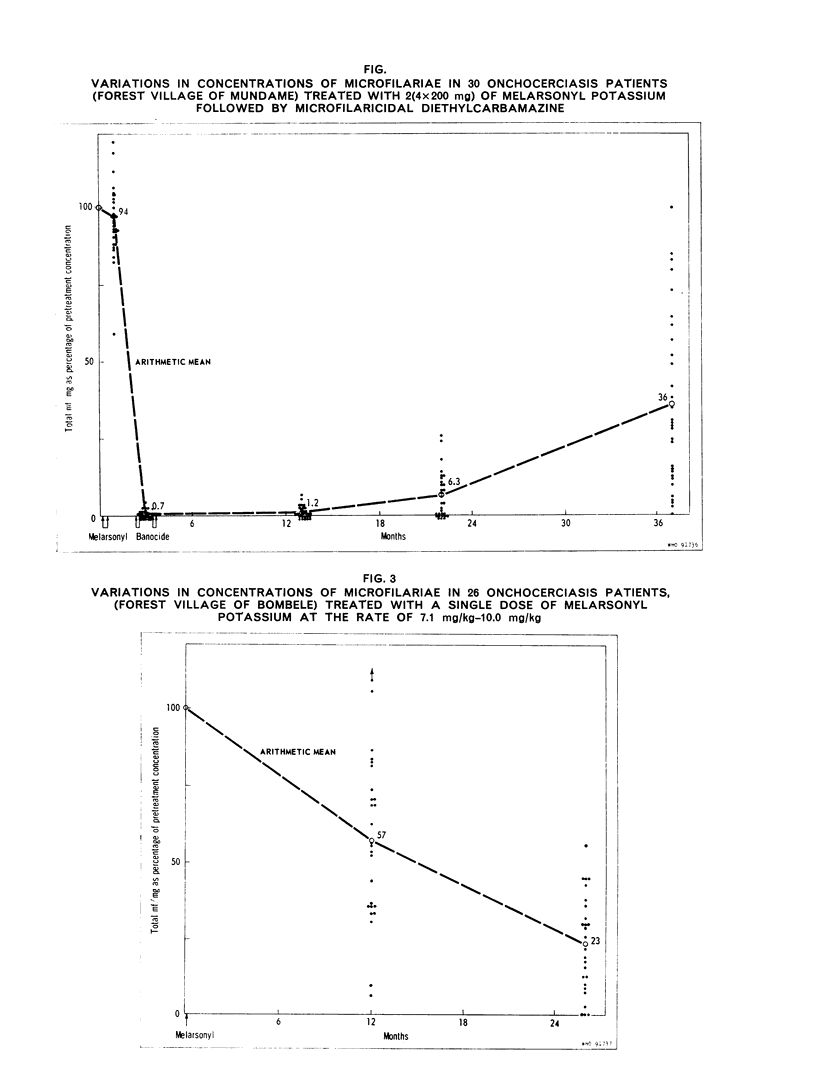
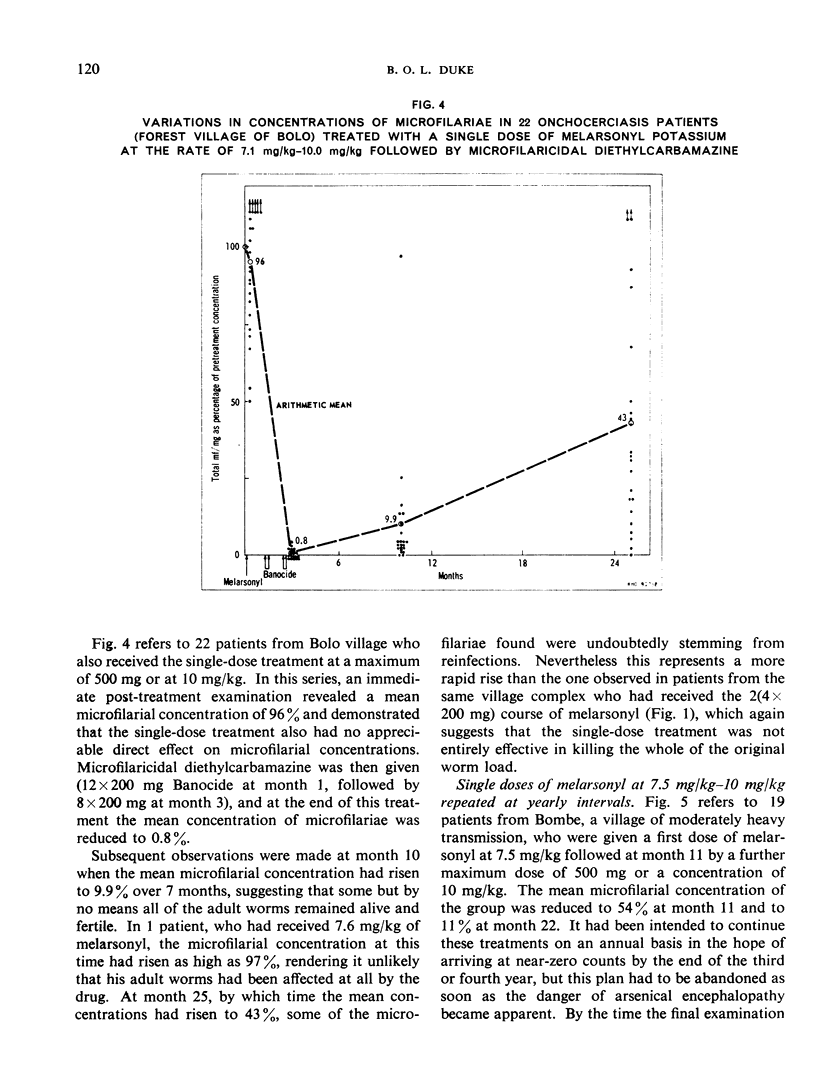
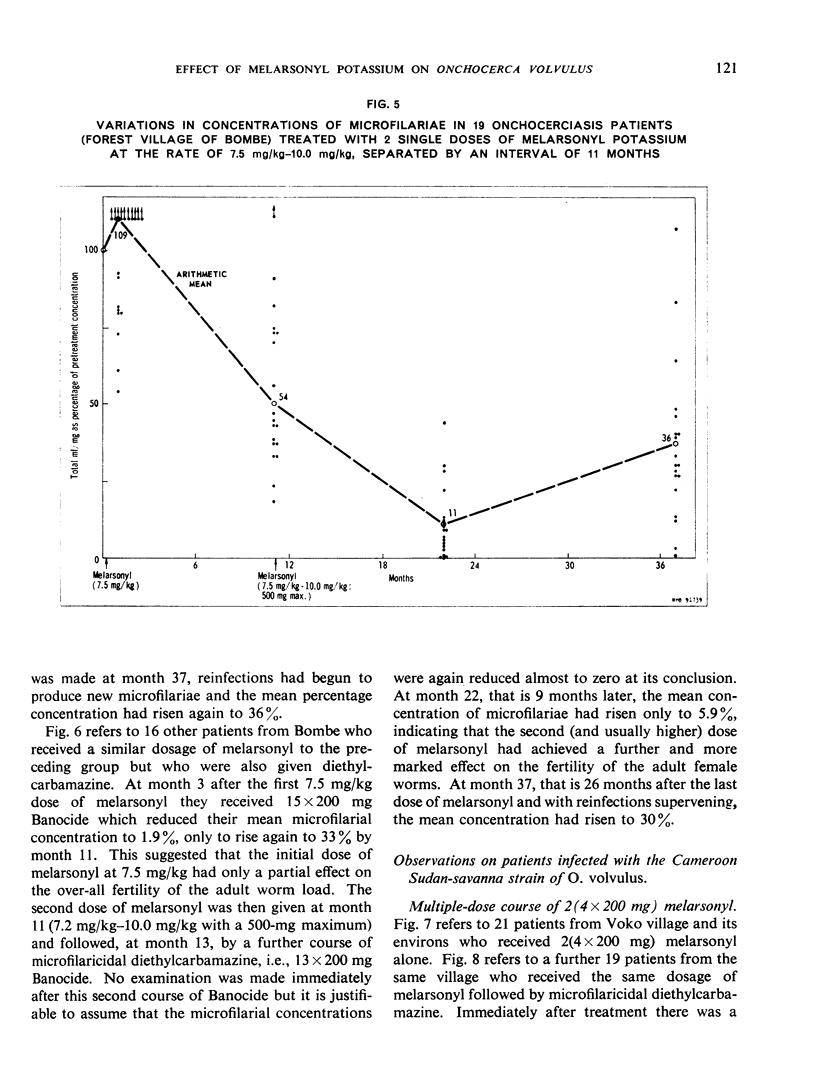
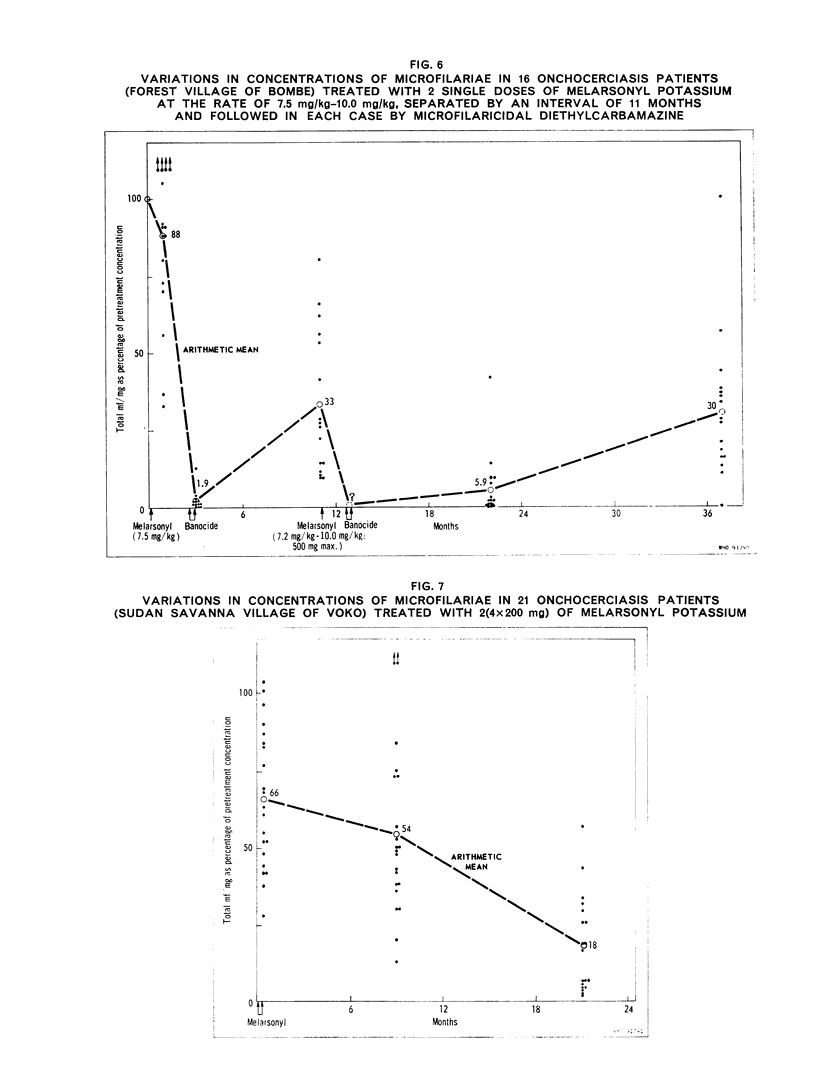
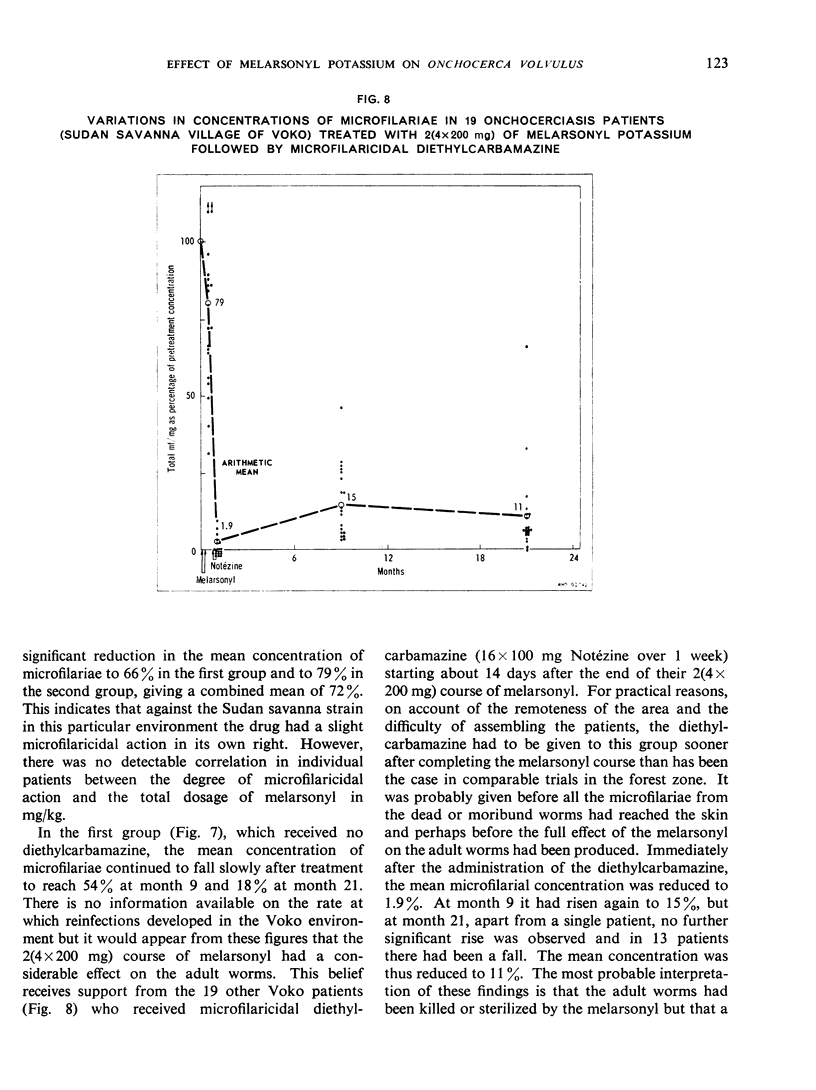
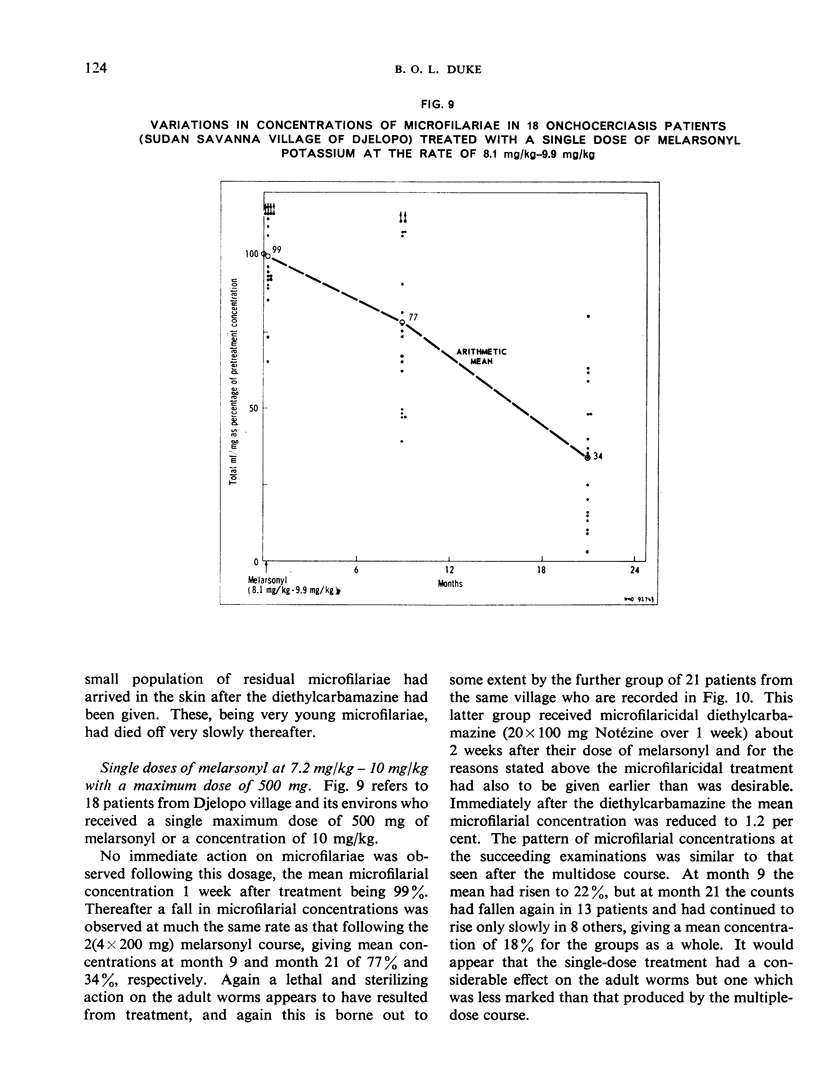
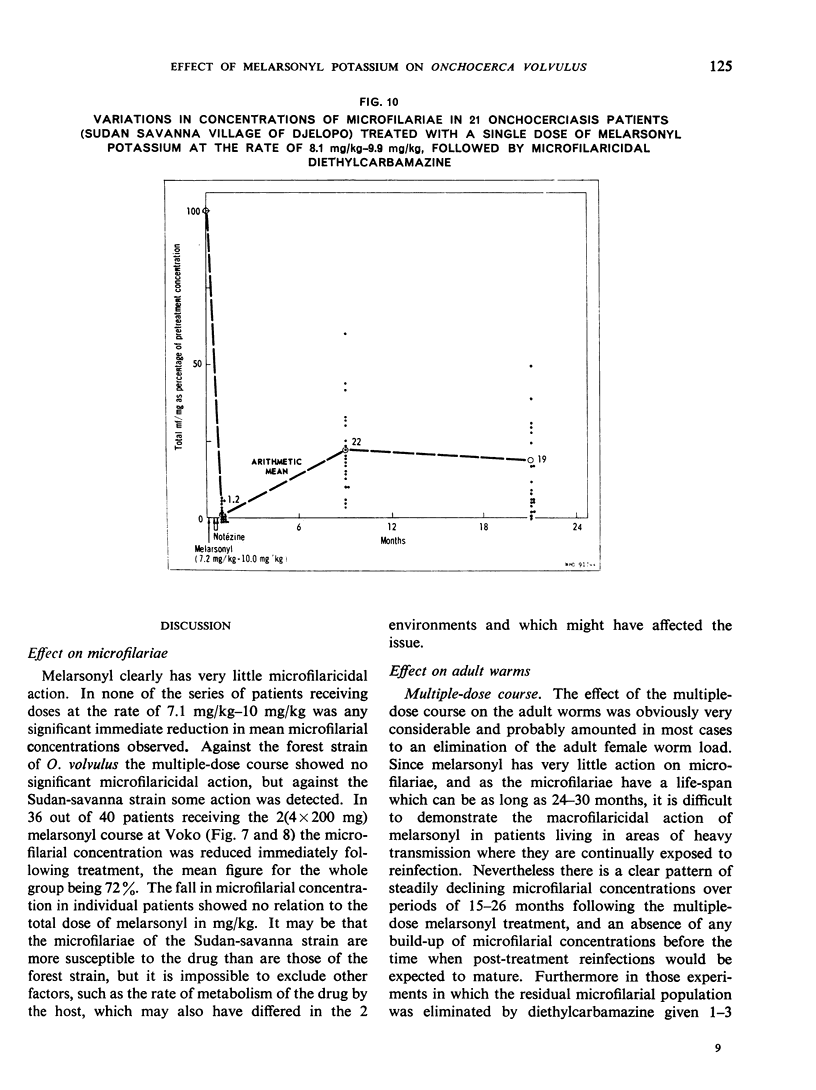
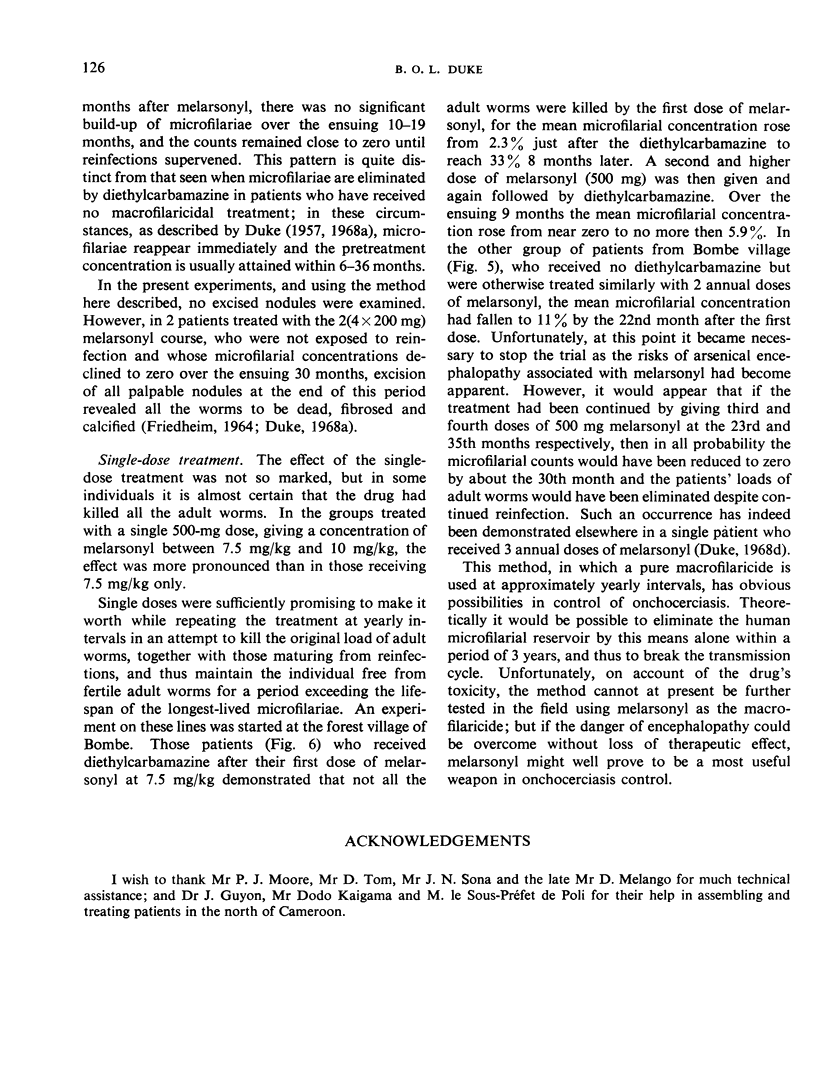
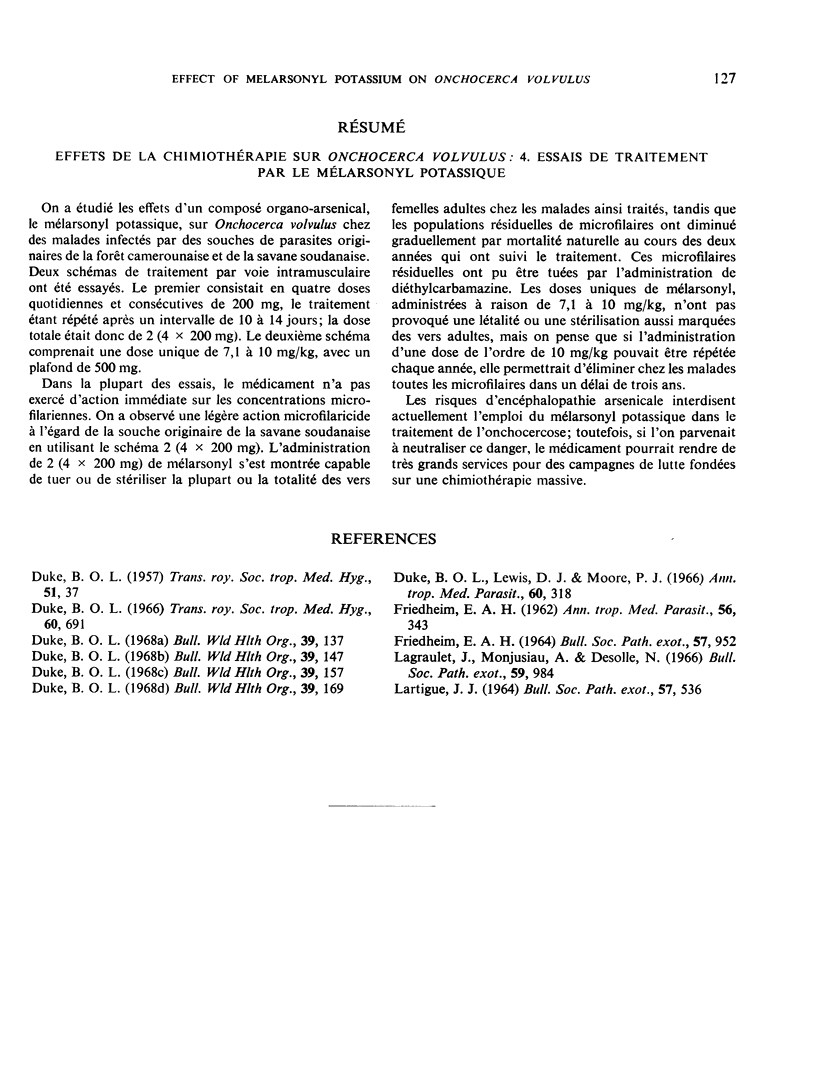
Selected References
These references are in PubMed. This may not be the complete list of references from this article.
- DUKE B. O. The reappearance, rate of increase and distribution of the microfilariae of Onchocerca volvulus following treatment with diethylcarbamazine. Trans R Soc Trop Med Hyg. 1957 Jan;51(1):37–44. doi: 10.1016/0035-9203(57)90004-4. [DOI] [PubMed] [Google Scholar]
- Duke B. O., Lewis D. J., Moore P. J. Onchocerca-Simulium complexes. I. Transmission of forest and Sudan-savanna strains of Onchocerca volvulus, from Cameroon, by Simulium damnosum from various West African bioclimatic zones. Ann Trop Med Parasitol. 1966 Sep;60(3):318–326. [PubMed] [Google Scholar]
- FRIEDHEIM E. A. Mel W in the treatment of onchocerciasis in leprosy patients: results in 12 cases observed for 20 months after treatment. Ann Trop Med Parasitol. 1962 Oct;56:343–351. doi: 10.1080/00034983.1962.11686129. [DOI] [PubMed] [Google Scholar]
- LARTIGUE J. J. LE M'ELARSONYL POTASSIQUE DANS LE TRAITEMENT DE L'ONCHOCERCOSE HUMAINE. NOTE PR'ELIMINAIRE. CONSTATIONS APR'ES DIX MOIS D'OBSERVATION. Bull Soc Pathol Exot Filiales. 1964 May-Jul;57:536–546. [PubMed] [Google Scholar]
- Lagraulet J., Monjusiau A., Dessolle N. Action du Mel W sur les nodules et sur la positivité des biopsies dans l'onchocercose. (Résultats observés 22 mois après une injection unique de 7 mg. 5 par kilogramme de poids) Bull Soc Pathol Exot Filiales. 1966 Nov-Dec;59(6):984–990. [PubMed] [Google Scholar]


